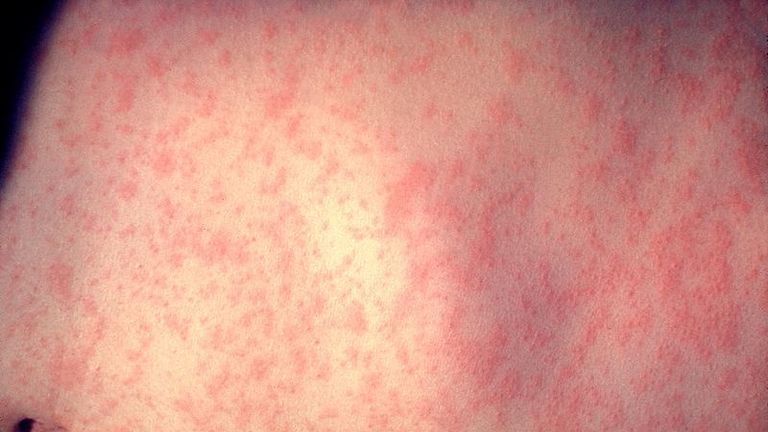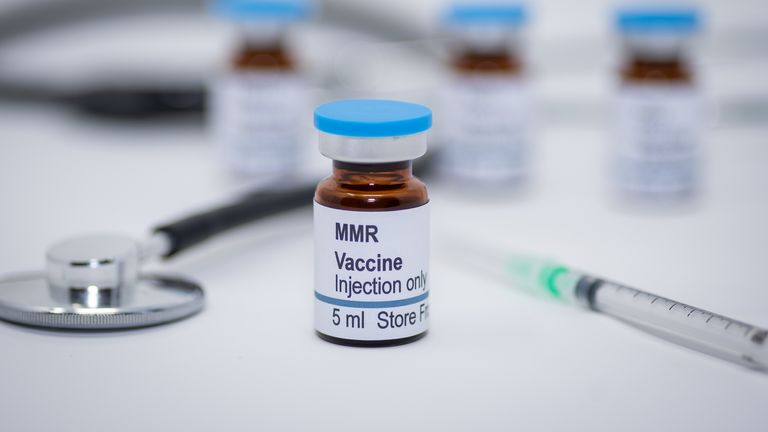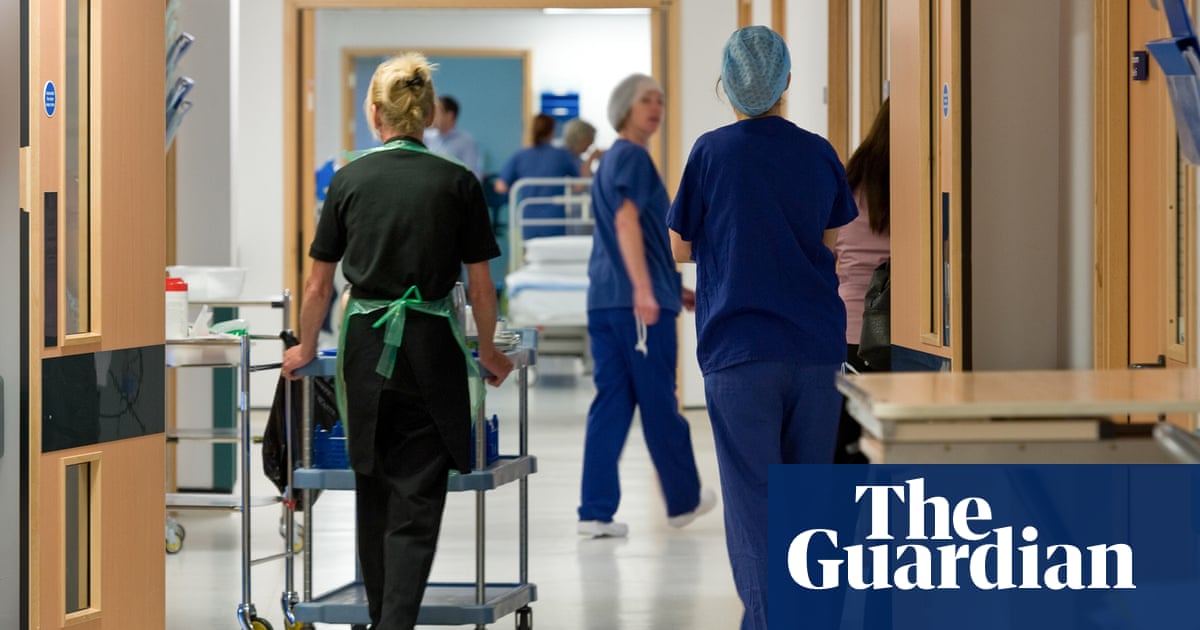A leading NHS hospital has warned measles is on the rise among children in the UK, after treating 17 cases since June.
Alder Hey Children's Hospital in Liverpool said it is "concerned" about the increasing number of children and young people who are contracting the highly contagious virus.
It said the cases it has treated since June were for effects and complications of the disease, which, in rare cases, can be fatal if left untreated.
"We are concerned about the increasing number of children and young people who are contracting measles. Measles is a highly contagious viral illness which can cause children to be seriously unwell, requiring hospital treatment, and in rare cases, death," the hospital said in a statement to Sky News.
In a separate open letter to parents and carers in Merseyside earlier this month, Alder Hey, along with the UK Health and Security Agency (UKHSA) and directors of Public Health for Liverpool, Sefton and Knowsley, warned the increase in measles in the region could be down to fewer people getting vaccinated.
The letter read: "We are seeing more cases of measles in our children and young people because fewer people are having the MMR vaccine, which protects against measles and two other viruses called mumps and rubella.
"Children in hospital, who are very poorly for another reason, are at higher risk of catching the virus."
What are the symptoms of measles?
The first symptoms of measles include:
• A high temperature
• A runny or blocked nose
• Sneezing
• A cough
• Red, sore or watery eyes
Cold-like symptoms are followed a few days later by a rash, which starts on the face and behind the ears, before it spreads.
The spots are usually raised and can join together to form blotchy patches which are not usually itchy.
Some people may get small spots in their mouth too.
What should you do if you think your child has measles?
Ask for an urgent GP appointment or call 111 if you think your child has measles.
If your child has been vaccinated, it is very unlikely they have measles.
You should not go to the doctor without calling ahead, as measles is very infectious.
If your child is diagnosed with measles by a doctor, make sure they avoid close contact with babies and anyone who is pregnant or has a weakened immune system.

It comes after a Royal College of Paediatrics and Child Health (RCPCH) report released earlier this month determined that uptake of vaccines in the UK has stalled over the last decade and is, in many cases, declining.
It said none of the routine childhood vaccinations have met the 95% coverage target since 2021, putting youngsters at risk of measles, meningitis and whooping cough.
The MMR vaccine has been available through the NHS for years. Two doses gives lifelong protection against measles, mumps and rubella.

According to the latest NHS data, Liverpool was one of the cities outside London with the lowest uptake of the MMR vaccination in 2023-2024.
By the time children were five years old, 86.5% had been give one dose, decreasing to 73.4% for a second dose.
The RCPCH report put the nationwide decline down to fears over vaccinations, as well as families having trouble booking appointments and a lack of continuous care in the NHS, with many seeing a different GP on each visit.
Read more from Sky News:
Met Police chief on London's 'shameful' racism challenge
'My voice box was removed after NHS missed cancer'
In the US, measles cases are at their highest in more than three decades.
Cases reached 1,288 on Wednesday this week, according to the US Centres for Disease Control and Prevention, with 14 states battling active outbreaks.
The largest outbreak started five months ago in communities in West Texas, where vaccination uptake is low. Since then, three people have died - including two children in Texas and an adult in New Mexico - with dozens more in hospital.

 10 hours ago
3
10 hours ago
3










 English (US)
English (US)